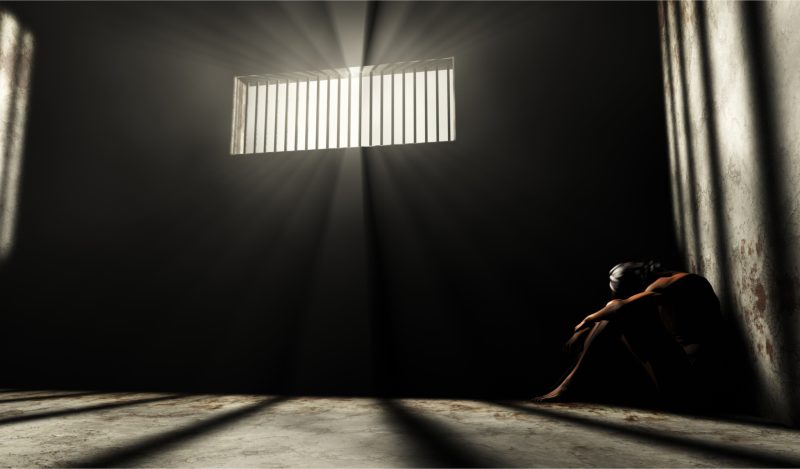Last week, I Net-searched someone I met about a decade ago. I found a mid-April 2020 YouTube video of him addressing an empty chapel at a boys’ boarding school where he teaches. This seven-minute sermon, which still has only 318 viewers, is a stark time capsule. In blazer and tie, the speaker intends to console students who’ve been sent home based on Coronavirus concerns. Using specific examples, he mourns the loss of the in-person community that he, other faculty and students had shared until the month before.
The church’s emptiness makes the message even more poignant. To the exiled seniors sitting alone in front of computer screens in their parents’ homes, the sermon must have seemed especially bleak: it acknowledges that they wouldn’t be coming back for the rituals, farewells and closure attendant to the final months of high/prep school.
Though nationwide, undergrads lost more time with peers. Some were out of school for a year and a half. And masked upon their return.
In the message’s final minute, the speaker takes a sharp tonal turn. He concludes that being alone is an inevitable part of life, and that we are never really separated from God or from those people with whom we have shared important parts of our lives.
This conclusion made me ambivalent. While it felt sincere and true, the denouement politely looks past the unsoundness of the decision to close that school and, by extension, the society at large. It was far from clear to me that locking down a rural boarding school, or any school, would lengthen any Grandpa’s life. And didn’t the ostensible effort to slightly extend Grandma’s life certainly cost countless others important slices of their younger, more vital lives? Couldn’t the students have faith and be directly surrounded by their schoolmates instead of just thinking about them?
The speaker’s synthesis reminded me of the frame of mind in which one finds oneself following other disappointments. Some days you think that you’ve made sense of what’s happened, have come to terms with it, and can move on from it. But this feeling isn’t always a satisfying or final emotional destination. Sometimes, the next day, or the next week or the next month, something about what went down still rankles. You can drift back and forth between the poles of accepting, and refusing to accept, what happened. I suspect that, during the many months following the sermon, the speaker and his student audience have experienced a range of reactions to continuing isolation, encompassing not only the speaker’s resignation, but also melancholy, disgust, and most of all, residual longing for human company.
Solitude is sometimes desirable and enjoyable. I’ve gone on week-long solo hikes deep into West Virginia and British Columbia and enjoyed these. I can enjoy doing other stuff alone, like playing piano or guitar, skating with stick and puck or shooting baskets, reading or doing various forms of work.
But like most people, I also like, and seek, time with other people.
Sometimes normal circumstances make solitude or separation from people we love inevitable. And this can sadden people. But often, separation-induced sadness can be rationalized and/or partially offset by the benefit of pursuing some larger goal. One might even, as the speaker emphasized, grow spiritually during periods of isolation. Many, from Holocaust survivor Victor Frankl to the rapper, DMX, have discussed the struggle to find meaning in suffering.
But after some basic character-building has occurred, struggle is just struggle, with diminishing returns. Being isolated from others, as during lockdowns, has tended to depress people. What doesn’t kill you doesn’t necessarily make you stronger. It might just weigh you down.
This is especially true when the struggle was arbitrarily, externally imposed. It was—and is—hard to convince oneself that Corona-driven isolation delivered any benefit. Inevitably, at various points, everyone suffers. There’s no need to artificially impose suffering. Life isn’t boot camp.
In March, 2020, when the lockdowns were just beginning, I reached out to various people I knew to express my disdain for closing a society over a respiratory virus. I was deeply dismayed to learn that many whom I knew thought locking down was a good idea. The media got an A+ in brainwashing, though the American public’s gullibility made the final exam easy.
I asked my social circle basic questions: When have healthy people ever been quarantined? Won’t a virus survive, no matter what people do; will a virus just die of frustration over being unable to sneak under people’s front doors? Won’t keeping people at home cause wide, deep human harm, both near-term and long-term? Etc.
No one I knew grappled with these questions. Instead, they uncritically bowed before the media and the government, and naively concluded that the “experts” were smarter than they or I were. In the lockdown-supporters’ view, it was a “novel virus!” and we had to “flatten the curve!” to “keep the hospitals from being overrun!” and to “just save one life!” Those who opportunistically incited such fear were more culpable than someone who would falsely shout “Fire!” in a crowded theater, because Covid fearmongering has had a long-term, society-wide effect.
Those whom I knew were sure the lockdowns were for our collective benefit and would only last for two weeks. They stridently said we should all be nice and embrace this temporary disruption. I think many of the lockdowners perversely enjoyed being part of some (overblown) historical crisis and thought it was cool that humans could be so savvy and modern as to crush a virus; though they turned out to be wrong about that second part. Others just liked the time off from work.
I was dumbfounded, not only by the numbers of people who supported locking down but also by their certainty that doing so made sense; they expressed no doubt about this approach. Undeterred by my grim informal poll results, I sent an anti-lockdown essay to multiple outlets, which all declined to publish my dissenting view.
From Day 1, I doubted this would end in two weeks. After four weeks had passed, and I had become increasingly flummoxed, I sent one friend a message reminding him of the “two week” bait-and-switch, and asked him if he still thought the lockdowns were “temporary,” as he had previously asserted.
He responded as would a Philosophy 101 student, pedantically stating that, by definition, all things were temporary. According to his illogic, Tom Hanks’ cinematic stint on a tropical island, a 20-year prison sentence, the 100 Years War and the Dark Ages were all temporary. He might as well have quoted Edie Brickell.
His evasive response angered me. I see life as short, and vital life as shorter still. This should be my epitaph: “Ain’t Nobody Got Time for That!”
By then, the time already stolen for political theater had already been unacceptable. I had no time for more theft.
My friend’s messaging got worse. About a week later, he e-mailed me a trite article he had found with a list of ten ways that people could make the best of the lockdown time; stuff like “Call an old friend,” “Try a new recipe,” “Learn a new language or a musical instrument,” or “Organize your closets.”
I already, normally did some of the stuff on the list. And the listed stuff I didn’t do, I didn’t want to do. I’m an adult. I deserve to make my own decisions about how to spend my non-work time. If I wasn’t already making time for some of these items on this corny list, that’s because I’d decided that I had better things to do. I didn’t want to hear any patronizing, propagandistic tripe, designed to pacify me.
I wanted to do other things that weren’t on the list, and to do these things with other people. There was no good reason for others to prevent me from meeting with other humans. I can manage my own risk. When I want time alone, I’ll make time alone.
I can’t express how much that list pissed me off. I haven’t spoken to the sender since. I doubt I ever will.
The Urban Dictionary defines a “tool” as “someone who is not smart enough to realize that he is being used.” I decided that my ex-friend, and anyone else who was going along with the “Stay home” and “We’re all in this together” was a tool. Of course, like the other lockdowners I knew, he could afford to be a tool because he could work from home and loved to watch TV.
Among all of the other obvious nonsense, saying that by staying home, we’re together is perhaps the most plainly Orwellian. Plus, in clearly observable ways, we weren’t “all in this together” during the pandemic; its logistical and economic impacts varied widely across the population. And in our pluralistic society, we had never all been in anything together. Why should a respiratory virus suddenly unify everyone. I still can’t believe that people bought such cheesy Madison Avenue slogans. Even the razor blade ads, depicting snapping-back/subdermal whiskers, are more persuasive.
In In Search of Lost Time/Remembrance of Things Past, Marcel Proust writes about the importance of memories in sustaining happiness. I’ll save you 4,000 pages of reading time. You can learn the same lesson by skimming a few high school yearbooks. They all have inscriptions like, “Remember [the fun we had in—nerd alert] Physics Lab…or football practices…or getting high behind the dumpster in the parking lot.” People treasure face-to-face experiences, not because these experiences are intrinsically great but simply because we like sharing time with others and, especially, the memory of doing so. In such settings, people spontaneously say stupid things that crack each other up. Social life is largely a series of private jokes. Most of us like it that way.
During the past 27 months, there has been a tremendous, unjustifiable, irredeemable deficit of interpersonal memory creation. The aggregate sense of loss from these memory holes will last lifetimes. This effect was eminently predictable. And its cause was so plainly unjustifiable. Why were so many people so willing to hand over precious, irreplaceable interpersonal time? They just weren’t thinking.
As Elvis Costello convincingly, Britishly said at the beginning of a late 1970s Save the Children radio ad, “Growing up under normal conditions is hard enough.”
In normal times, we find ourselves alone often enough. No one had any business arbitrarily isolating people from each other. It was clearly punitive, manipulative, malicious and political. It didn’t protect public health. It worsened it, significantly.
Lockdowns were never okay. The tiny risks to most didn’t come close to justifying the certain harm to all. They should never have begun. Not even for a day.
Reposted from the author’s Substack
Join the conversation:

Published under a Creative Commons Attribution 4.0 International License
For reprints, please set the canonical link back to the original Brownstone Institute Article and Author.









